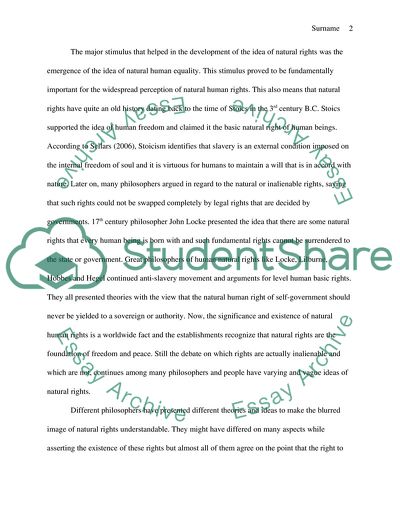Cite this document
(Natural Rights of Human Beings Essay Example | Topics and Well Written Essays - 2500 words, n.d.)
Natural Rights of Human Beings Essay Example | Topics and Well Written Essays - 2500 words. Retrieved from https://studentshare.org/social-science/1740573-do-human-beings-have-any-natural-rights-if-so-which-are-they-and-how-might-they-be-justified
Natural Rights of Human Beings Essay Example | Topics and Well Written Essays - 2500 words. Retrieved from https://studentshare.org/social-science/1740573-do-human-beings-have-any-natural-rights-if-so-which-are-they-and-how-might-they-be-justified
(Natural Rights of Human Beings Essay Example | Topics and Well Written Essays - 2500 Words)
Natural Rights of Human Beings Essay Example | Topics and Well Written Essays - 2500 Words. https://studentshare.org/social-science/1740573-do-human-beings-have-any-natural-rights-if-so-which-are-they-and-how-might-they-be-justified.
Natural Rights of Human Beings Essay Example | Topics and Well Written Essays - 2500 Words. https://studentshare.org/social-science/1740573-do-human-beings-have-any-natural-rights-if-so-which-are-they-and-how-might-they-be-justified.
“Natural Rights of Human Beings Essay Example | Topics and Well Written Essays - 2500 Words”, n.d. https://studentshare.org/social-science/1740573-do-human-beings-have-any-natural-rights-if-so-which-are-they-and-how-might-they-be-justified.


